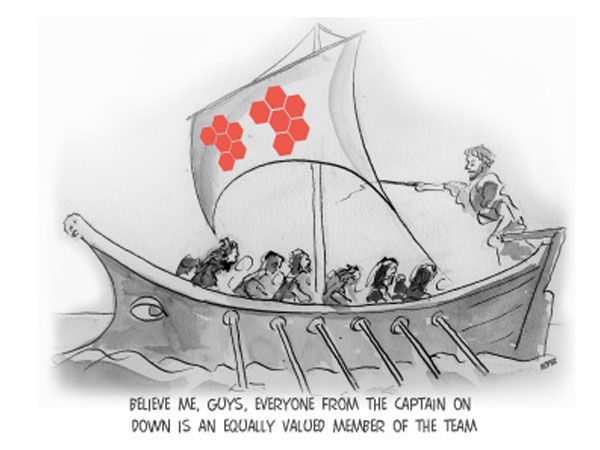The best teams go with the ‘flow’. How can leaders make sure their teams are set up in this way?
A ‘flow state’ is the mental state described in positive psychology, where someone who is performing a particular activity is so fully absorbed, energised, and focused that time seems to literally ‘stand still’.
Being ‘in the flow’ (or in the zone) creates intense feelings of enjoyment and satisfaction, and there are physiological benefits such as a lowered heart rate.
Until recently, it was thought that although a team could also be in the flow, this was just the result of individual experience combined with the social interaction of the group.
But a recent scientific study using brain scans, has shown that when you are part of a high functioning team engaged in a task, your brain waves actually sync with those of your team mates.
“Team flow occurs when a group functions in a high task engagement to achieve a goal, commonly seen in performance and sport” (eNeuro Journal).
The reasons why your brainwaves sync with the rest of your team are not yet clear, but the key to assembling a team that can find its flow, is to build a team with;
- A common purpose
- Clear performance goals
- Complementary skills
- Strong commitment
- Mutual accountability
On this basis, as a leader you need to pay attention to the following:
Is this actually a team?
Or is it a group of people loosely bound together, but without a specific goal or common purpose. If that’s the case, then there is no reason (or requirement) for you to to manage them as a team.
Clear performance goals
You need to provide clarity on what the team is there to deliver for the business and agreed metrics that will define the team’s success. What will good look like?
Focus on the outcomes, rather than the various activities that contribute to achieving the goals. And the success metrics need to be both financial KPIs and ‘softer’ measures such as client and team satisfaction.
Complementary skills
If a team is to be more than the sum of its parts, then it needs a range of skills and personalities. You will also be more likely to avoid ‘group think’. You need to create a team culture where people can speak their minds freely, come up with ideas and create solutions together without feeling intimidated.
Strong commitment
People must be committed to their team leader and the other team members, as well as to the job in hand. This level of commitment comes about when you are clear and honest in your communication, and any misunderstandings or concerns amongst team members are properly surfaced and resolved. No elephants in the room!
Mutual accountability
If a team is mutually accountable, they do what they promise to do, they don’t let other people down and they proactively help each other out. They have the courage to call each other out and hold each other to account when necessary.
The pandemic and the edict to work from home has taken its toll on your team. As we move to some variation of hybrid working, it’s critical that you still get your team all together for some team building – even if it’s once a quarter. That doesn’t mean you go abseiling together or dust off the Lego.
At Leaders Lab we believe the best thing you can do for your team is to get them together in the same room. Give them the chance to talk freely about what matters to them in their work, sort out their differences and leave with a set of action points that will transform their performance and get them ‘in the flow’.
If you’d like to know more about our sort of team building, then do get in touch for a chat.
Amanda Baines: ab@leaderslab.co.uk | 07770 221166
Kate Mercer: km@leaderslab.co.uk | 07801 259637
